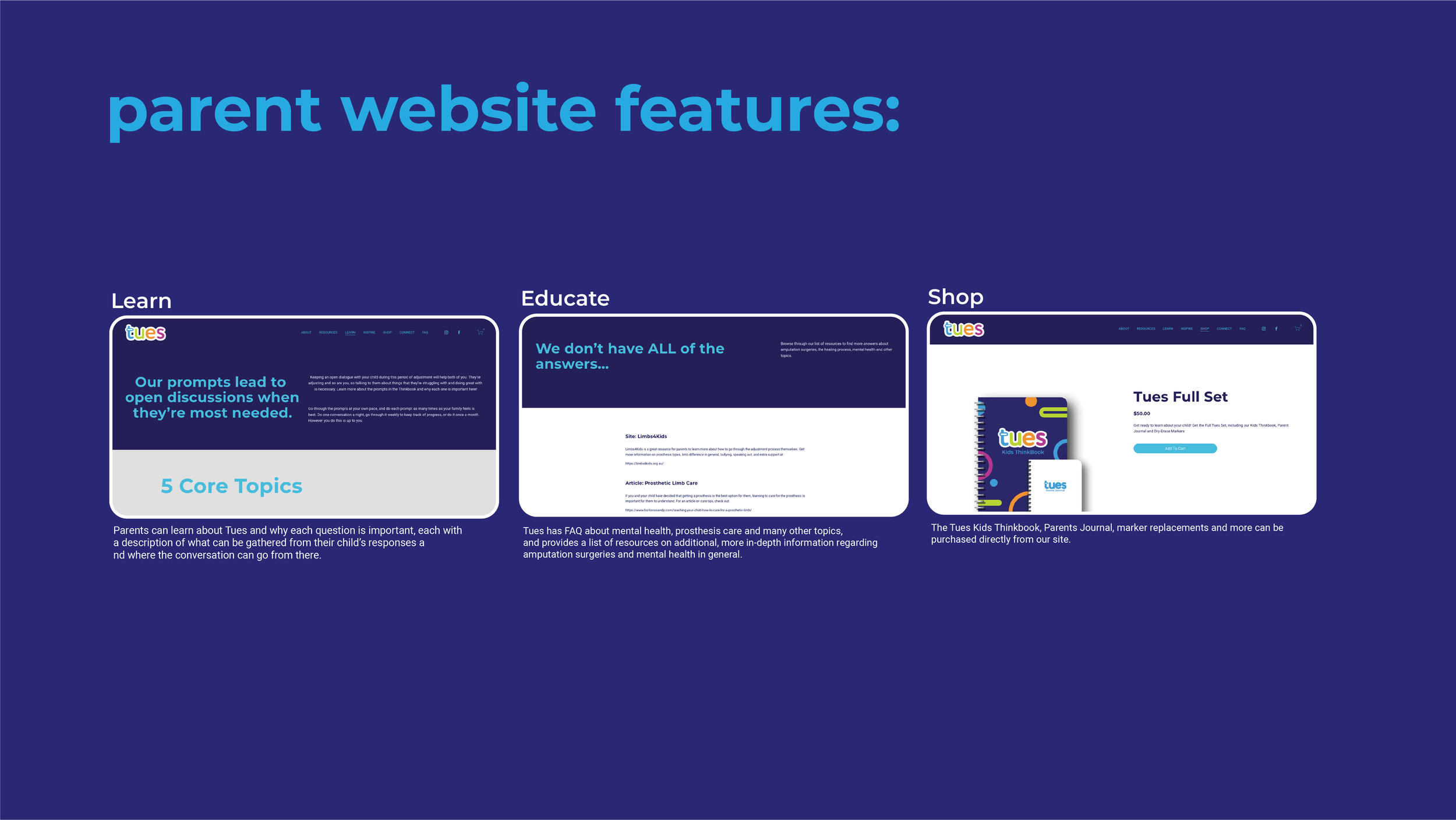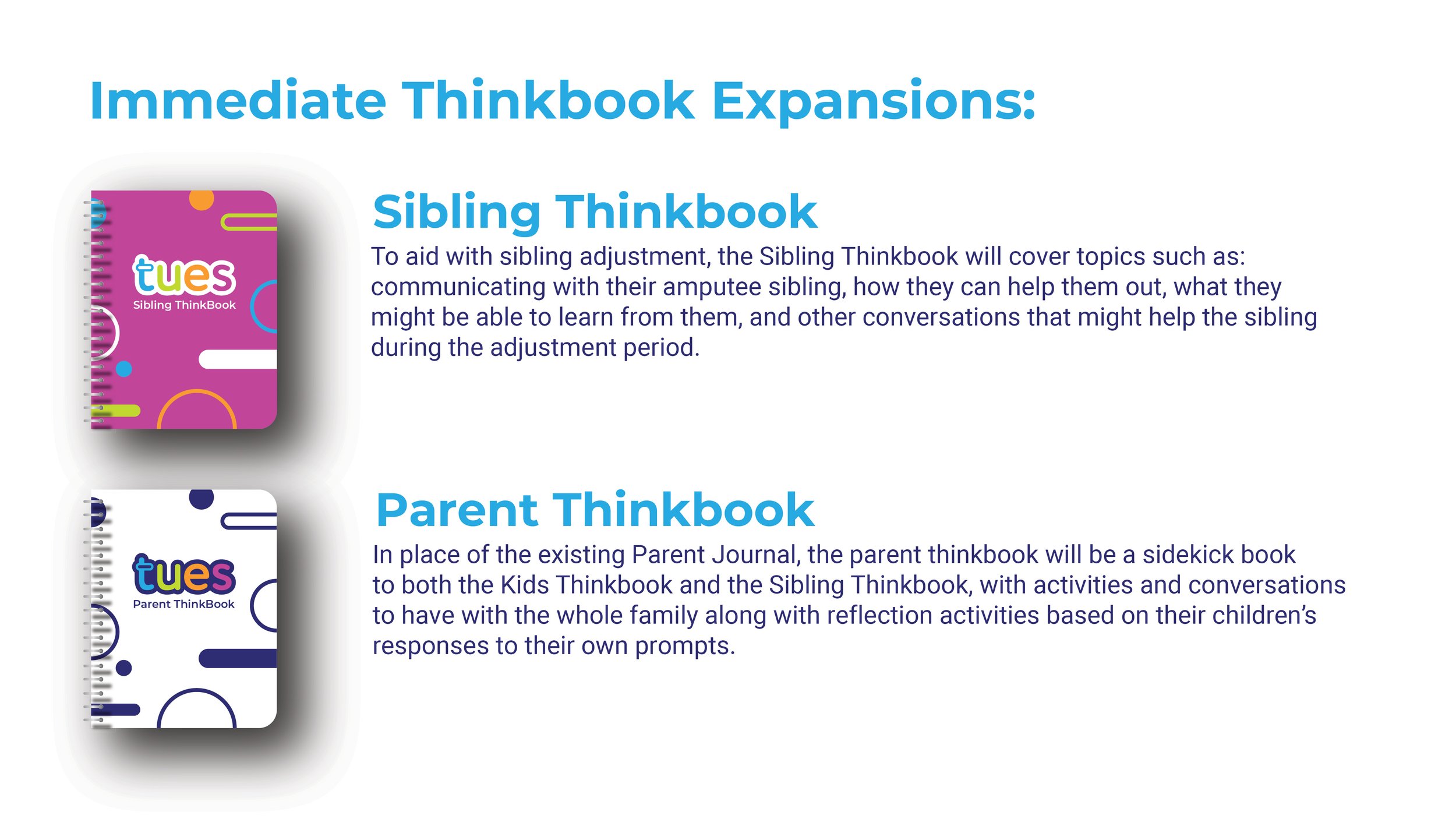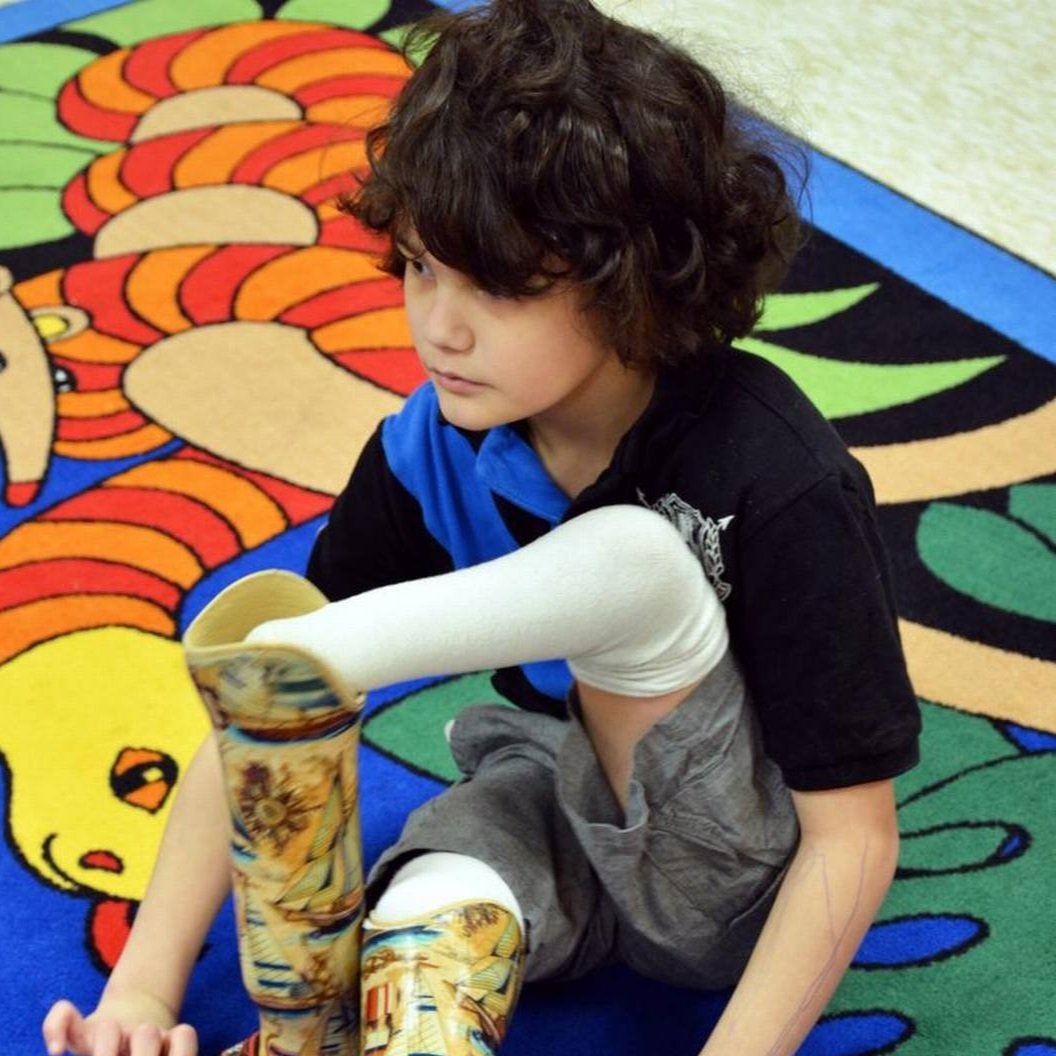tues toolkit
Tues is a pediatric post-amputation toolkit that aims to reduce the risk of anxiety and depression in children during the adjustment period. The main goal is to encourage open conversations about the healing process and the child’s mindset with their families and/or caretakers.
Tues: the word “Tuesday” comes from Tyr, the Nordic god of war and courage, who sacrificed his arm to save his people and lived his life known as a strong and powerfull amputee.
book // UX/ui

user personas
Positive Parents
Adam’s parents can’t imagine what their son must be feeling during his healing process, and want to make sure that he feels alone as little as possible. They want to be supportive of him and understand where they can help him heal emotionally.
Adjusting Adam
Adam just went through an amputation surgery due to a longtime medical complication. He’s nervous about going through the healing process, especially when it’s time for him to go back to school and see his friends for the first time since the surgery.
Supportive Sarah
Sarah is Adam’s big sister who is going to have to go through an adjustment period of her own alongside him. She wants to support him and their relationship and learn how she can be the best sister that she can during this time.
surgery research: background
1: Self-Image
Physical change, painful healing, phantom limb syndrome, medical complications
mental
Realizing that life is different, frustrations, anxiety/depression risks increase, desire to be independent
emotional
Challenged self-confidence, unpreparedness, frustration due to difference, emotional surpression to force normalcy
research: effects of amputation surgery
financial
Prosthesis costs can be $70k/year, doctor cost, PT cost, financial strain causing stress and guilt, especially in children
Almost 40% of individuals who have undergone an amputation surgery will develop anxiety or depression. The risk increases even more when the individual suppresses their feelings and doesn’t address frustrations or other difficulties during the adjustment process, especially during the key developmental period of 4-12 years of age.
the problem
By the age of 7, children have developed a sense of self-esteem.
During these years of important mental development, they begin to compare themselves to their peers.
The physical and emotional trauma of undergoing an amputation surgery greatly affects their mental development and self-image.
summer camps
creative outlets
athletics
current opportunities for young amputees
While all options now help with the confidence of young amputees, none specifically target anxiety and depression through exercising conversational skills at home.

1: Self-Image
Getting a benchmark for how the child sees themself; their current confidence level
2: perception
How the child sees themself from others’ point of view and their comparison of themself to others
3: goal-setting
What the child wants for their own future, short and long term goals
core topics
The Thinkbook is divided into 6 sections, each focusing on a different one of the core topics for communication and confidence-building
4: being realistic
Acknowledging the changes that have happened since the surgery and talking about discussions that may come up with others in the future
5: reassurance
Giving loved ones the opportunity to say things for the child to remember in order to feel better when they get frustrated or sad
6: inspiration
Short stories and coloring pages about real-life amputees who did amazing things
example core topic pages
Topic 1: Self-Image
This question is here to have the child define themself and their interests in a positive way, and to give them something to look back on when the bad seems to outweigh the good. Hopefully this question will be easy! The key is to have a positive mindset. If they have trouble coming up with things, start small. Maybe they like sleeping in on snow days, have a favorite food or just love summertime.
How your child answers the question is key for you to remember. When they get frustrated or are struggling with figuring out how to do something, remind them that these things exist. Give them something to turn to!
Topic 4: being realistic
This one is tough, but necessary for any child, especially one who has just undergone a life-changing surgery.
Teaching kids when it’s okay to say “no” in conversation can be tricky. However, an important thing to remember with their new change being physical is that other people might not know how to react, especially other kids their age, and that their first instinct might be to ask them a question that makes them feel uncomfortable, though unintended to do so. Sometimes the best thing to do with those questions is to shut down that conversation politely, so you should all talk about how to respond when a question that they’re asked doesn’t need to be answered.
example inspiration pages
rick allen
Better known as “The Thunder god”, Rick Allen is the drummer for popular rock band Def Leppard. Immensely talented, he was already a professional drummer by the age of 15. In 1984, when he was only 21 years old, his left arm got caught in his seatbelt during a car accident, resulting in the need for amputation. He had to leave the band while his body healed. He chooses not to wear a prosthesis and in 1986, he returned to Def Leppard to become the famous one-armed drummer. Many fans say that he is an even better drummer now and that his music sounds like thunder, hence the nickname. Over 4 years later, he’s still touring with the band. He’s developed other creative hobbies over the years such as painting and photography, which are equally as impressive.
Rick’s Website: https://www.rickallen.com
sticker pages
a few pages are full of fun stickers (including renderings of the inspirational figures’ personal prostheses) that the child can use to decorate their book, prosthesis or whatever else they want.
tues branding guide
The adjustment period after an amputation surgery is difficult for the whole family. Parents need resources too, so along with the benefits of the Thinkbook, the Tues website is for them.


































